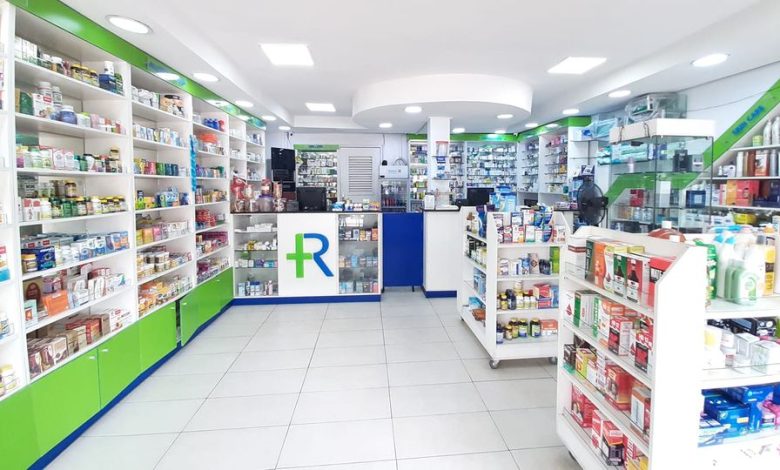20 Types Of Pharmacies You Should Know

What is a pharmacy?
A pharmacy is a healthcare facility where licensed pharmacists dispense medications, provide medication-related advice, and offer other healthcare services. Pharmacies can be found in a variety of settings, including retail locations, hospitals, clinics, and long-term care facilities.
Pharmacies typically stock a wide range of medications, including prescription drugs, over-the-counter medications, and medical supplies. Pharmacists are responsible for ensuring that medications are dispensed safely and accurately, and they work closely with patients and other healthcare professionals to ensure that medications are used appropriately.
In addition to dispensing medications, pharmacies may also offer other healthcare services, such as medication therapy management, immunizations, and health screenings. Pharmacies may also provide counseling and education to patients on topics such as medication safety, disease management, and healthy lifestyle choices.
Pharmacies play a crucial role in healthcare, providing access to essential medications and healthcare services to millions of people around the world.
History Of Pharmacy Premises
The history of pharmacy premises can be traced back to ancient times when the practice of pharmacy was closely linked to medicine and religion. In many cultures, pharmacists were considered healers and were often associated with temples, churches, or other religious institutions. In ancient Egypt, for example, temples served as centers for medical and pharmaceutical knowledge, and priests were responsible for compounding and dispensing medicines.
During the Middle Ages, the practice of pharmacy continued to evolve, and pharmacists began to establish their own premises. In Europe, apothecaries became the primary providers of medicine, and they established shops or premises where they prepared and dispensed medications. These premises often featured distinctive signage, such as an image of a mortar and pestle, to help customers identify the shop.
As the practice of pharmacy continued to evolve, the design and layout of pharmacy premises also changed. During the Renaissance, pharmacies began to incorporate more sophisticated equipment, such as balances and measuring tools, to ensure accurate compounding and dispensing of medications. In the 19th and 20th centuries, pharmacies became more standardized, with the establishment of regulations and laws governing the practice of pharmacy.
Today, pharmacy premises can be found in a variety of settings, including retail locations, hospitals, clinics, and long-term care facilities. Pharmacies often feature modern equipment, such as automated dispensing systems and electronic health records, to help pharmacists provide safe and effective medication therapy. In some countries, pharmacies also offer additional healthcare services, such as vaccinations and health screenings, to help patients manage their health and prevent disease. The history of pharmacy premises reflects the evolution of pharmacy as a profession, from its roots in ancient times to the modern, technology-driven practices of today.
Types Of Pharmacies
There are several types of pharmacies, including:
1. Retail Pharmacy: Retail pharmacies are the most common type of pharmacy and can be found in many locations, including drugstores, supermarkets, and mass merchandisers. They dispense medications to individuals with valid prescriptions and provide over-the-counter medications, health products, and other healthcare-related items.
2. Compounding Pharmacy: Compounding pharmacies specialize in preparing customized medications that are tailored to a patient’s specific needs. They can provide medications in different forms, such as creams, gels, and liquids, and can also make medications that are not commercially available.
3. Hospital Pharmacy: Hospital pharmacies provide medications and other healthcare-related products to patients who are admitted to a hospital. They work closely with physicians, nurses, and other healthcare professionals to ensure that patients receive the appropriate medications and that medications are used safely and effectively.
4. Long-Term Care Pharmacy: Long-term care pharmacies provide medications and other healthcare-related products to patients who reside in long-term care facilities, such as nursing homes or assisted living facilities. They work closely with healthcare professionals to ensure that patients receive the appropriate medications and that medications are used safely and effectively.
5. Mail-Order Pharmacy: Mail-order pharmacies provide medications and other healthcare-related products to patients through mail delivery. They often provide medications in larger quantities and can be a convenient option for patients who need medications for chronic conditions.
6. Specialty Pharmacy: Specialty pharmacies provide medications and other healthcare-related products for patients with complex or rare conditions, such as cancer, HIV/AIDS, and multiple sclerosis. They work closely with healthcare professionals to ensure that patients receive the appropriate medications and that medications are used safely and effectively.
7. Clinical Pharmacy: Clinical pharmacies are located in healthcare settings, such as hospitals or clinics, and are staffed by pharmacists who work as part of a healthcare team. They provide medication therapy management services, monitor patients’ medication regimens, and work closely with other healthcare professionals to ensure that patients receive safe and effective care.
8. Online Pharmacy: Online pharmacies allow patients to order medications and other healthcare-related products over the internet. They offer convenience and may be a useful option for patients who have difficulty accessing traditional pharmacies.
9. Veterinary Pharmacy: Veterinary pharmacies provide medications and other healthcare-related products for animals, including pets, livestock, and wildlife. They work closely with veterinarians to ensure that animals receive the appropriate medications and that medications are used safely and effectively.
10. Government Pharmacy: Government pharmacies are operated by government agencies and provide medications and other healthcare-related products to patients who are eligible for government-funded healthcare programs, such as Medicare or Medicaid. They often provide medications at lower costs to help ensure that patients have access to affordable healthcare.
11. Nuclear Pharmacy: Nuclear pharmacies specialize in the preparation and dispensing of radioactive medications, such as those used in cancer treatment and diagnostic imaging. They adhere to strict safety guidelines to ensure that medications are prepared and dispensed safely.
12. Academic Pharmacy: Academic pharmacies are located within universities and colleges and are often associated with pharmacy schools. They provide pharmacy education and training to students and may also offer pharmacy services to the community.
13. Home Infusion Pharmacy: Home infusion pharmacies provide medications and other healthcare-related products to patients who require intravenous therapy at home. They work closely with healthcare professionals to ensure that patients receive the appropriate medications and that medications are used safely and effectively.
14. Clinical Trial Pharmacy: Clinical trial pharmacies provide medications and other healthcare-related products for use in clinical trials. They work closely with researchers and healthcare professionals to ensure that medications are dispensed and used appropriately during clinical trials.
15. Telepharmacy: Telepharmacy allows pharmacists to provide pharmacy services remotely, such as through videoconferencing or other remote communication technologies. This can be useful for patients who live in remote areas or who have difficulty accessing traditional pharmacies.
16. Community Pharmacy: Community pharmacies are community-based pharmacies that provide medications and other healthcare-related products to individuals within the local community. They often provide a range of services, such as medication counseling, health screenings, and vaccinations, and may also offer home delivery services.
17. 340B Pharmacy: 340B pharmacies participate in the 340B Drug Pricing Program, a federal program that allows certain healthcare facilities to purchase medications at discounted prices. These pharmacies provide medications to eligible patients at reduced prices and often serve patients who are uninsured or underinsured.
18. Traditional Chinese Medicine (TCM) Pharmacy: TCM pharmacies specialize in dispensing traditional Chinese medicines, such as herbs and acupuncture supplies. They may also offer consultations with TCM practitioners and other related services.
19. Ambulatory Care Pharmacy: Ambulatory care pharmacies provide medication therapy management services to patients who receive care on an outpatient basis, such as in clinics or other healthcare facilities. They work closely with healthcare professionals to help improve patient outcomes and ensure that medications are used safely and effectively.
20. Industrial Pharmacy: Industrial pharmacies are located within industrial or manufacturing facilities and provide medications and other healthcare-related products for employees. They may also offer other occupational health services, such as health screenings and immunizations.
Family Pharmacies
Family pharmacies are independent pharmacies that are owned and operated by families. They are often small businesses that serve the local community and provide personalized service to their customers. Family pharmacies are sometimes called “mom and pop” pharmacies because they are typically run by families or individuals rather than large corporations.
Family pharmacies may offer a range of services, such as medication counseling, medication synchronization, home delivery services, and compounding. They may also offer over-the-counter medications, health and wellness products, and other healthcare-related items.
One of the benefits of family pharmacies is the personalized service they offer. Since they are often run by families or individuals who are deeply involved in the community, they may be more familiar with their customers and their unique needs. This can help ensure that customers receive personalized care and attention.
Another benefit of family pharmacies is that they may be more flexible and adaptable than larger pharmacies. Since they are independent businesses, they may be able to respond more quickly to changes in the healthcare industry and adapt their services to meet the evolving needs of their customers.
Conclusion
Overall, the different types of pharmacies offer a variety of services and products to meet the unique needs of patients in different healthcare settings. Pharmacists play a critical role in ensuring that patients receive safe and effective care, and they work closely with other healthcare professionals to help improve patient outcomes.





